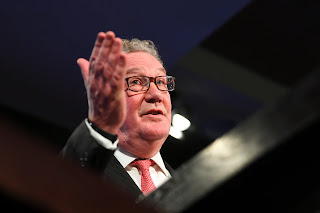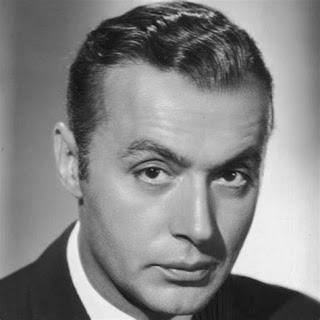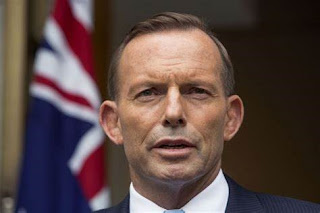__________
1982: During a 12-month freeze on wages in 1982, then-prime minister Malcolm Fraser told workers “Life wasn’t meant to be easy”. The line originally came from a George Bernard Shaw play ‘Methuselah’: “Life wasn’t meant to be easy, my child; but take courage, it can be delightful.” His political opponents seized on it as an example of how a man born to wealth and privilege failed to understand the concerns of everyday Australians.
__________
1994: As Leader of the Opposition in the Australian Federal Parliament, Liberal Alexander Downer stunned the party faithful into silence when he told them at a dinner that the party’s slogan, ‘The Things That Matter’, should be changed to “the things that batter”, to reflect their domestic violence policy. This merry jest contributed to Mr Downer losing the leadership.
__________
Girolamo Cardano, Italian mathematician and astrologer, was renowned throughout Europe as an astrologer, even visiting England to cast the horoscope of the young king, Edward VI.
A steadfast believer in the accuracy of his so-called science, Cardano constructed a horoscope predicting the hour of his own death.
When the day arrived, it found him in good health and safe from harm.
Rather than have his prediction falsified, Cardono killed himself
__________
After racking up $40 in late fees for a VHS, Reed Hastings was inspired to start NETFLIX.
"I had a big late fee for Apollo 13. It was six weeks late and I owed the video store $40. I had misplaced the cassette. It was all my fault. I didn't want to tell my wife about it. And I said to myself, ‘I'm going to compromise the integrity of my marriage over a late fee?’ Later, on my way to the gym, I realized they had a much better business model. You could pay $30 or $40 a month and work out as little or as much as you wanted."
Hastings said that when he founded Netflix, he had no idea whether customers would use the service.
__________
Newspaper publisher William Randolph Hearst offered columnist Arthur Brisbane a six-month vacation on full pay as a reward for his dedicated and successful work. When Brisbane refused, Hearst asked him why.
The journalist advanced two reasons: “The first is that if I quit writing for six months it might damage the circulation of your newspapers.”
He paused for a moment; then said: “The second reason is that it might not.”
__________
The above reminds me of an anecdote about Charles Boyer.
Boyer was to film a scene in bed with a lovely leading lady.
Just before the scene, he said, ‘You know, sweetheart, if possibly I get – how do you say – aroused during the scene, forgive me, please.’
And then he said, ‘If possibly I don’t get aroused, forgive me please.”
__________
2013: At a Liberal Party function, Tony Abbott was criticising Prime Minister Kevin Rudd. “No one, however smart, however well-educated, however experienced, is the suppository of all wisdom.” The word he needed was “repository”.
__________
A friend of US President Ulysses S Grant once took the President to a golf course in the hope of encouraging him to take up the game. After watching a beginner hack the grass around the tee for several minutes without touching the ball, Grant remarked: “That does look like very good exercise. But what is the little white ball for?”
__________
The story behind America’s anthem dates back to the War of 1812’s Battle of Baltimore.
In September 1814, American attorney Francis Scott Key sailed out to the British fleet in the Chesapeake Bay to negotiate the release of an imprisoned friend. Detained overnight, he watched with bated breath as the British moved on Baltimore and rained over 1,800 rockets and bombs on nearby Fort McHenry. A defeat seemed imminent, but when dawn finally broke, Key was overjoyed to see the American flag still waving over the fort—a clear sign that it had not fallen to the British.
Key scribbled down the poem that became “The Star-Spangled Banner” that day, and by September 20, his patriotic words had found their way into a Baltimore newspaper. The song—ironically set to the melody of a British tune—later became popular in the armed forces, but it wasn’t until 1931 that it was formally adopted as the American national anthem.
__________
Hugh Jackman once briefly worked as a clown at kids' birthday parties. "I was very good with the three-year-olds and four-year-olds parties, because you really just dress up & you're done," he recalled years later. "And I remember once getting a little cocky and I did an eight-year-old's birthday party. All you are hired to do is to keep the kids occupied for an hour... so that mums and dads can drink. Five minutes into my schtick, this little eight-year-old kid—who I hate to this day—stands up: 'Mom! Dad! This clown is crap!' I said, 'What? Shut up, shut up, kid.' And I pull out the thing—I used to juggle eggs... I just said, 'Here, kids: eggs.' They were throwing eggs at me. I walked out, took off the wig, and never went back again."











No comments:
Post a Comment
Note: Only a member of this blog may post a comment.